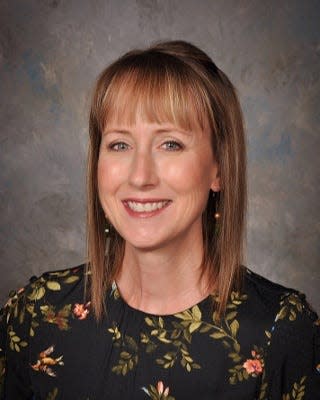Young learners need childhood educators who are qualified for their unique needs
In our quest for educational excellence, one undeniable truth has emerged: Early childhood education is the cornerstone upon which a successful future is built. Countless studies have demonstrated the profound impact of quality early learning experiences on cognitive development, academic achievement and long-term societal outcomes. Yet, despite this wealth of evidence, a troubling discrepancy persists in how we prepare and credential those entrusted with shaping young minds.
Decades of research have underscored the transformative power of early childhood education, showing that it not only fosters positive cognitive outcomes but also reduces the need for remedial education, bolsters high school graduation rates, mitigates juvenile delinquency, and lays the foundation for higher educational attainment. These are not just statistics; they represent the realization of individual potential and the economic prosperity of nations. However, to reap these benefits fully, we must ensure early childhood educators are equipped with the specialized training and credentials necessary to nurture young learners effectively.
More: A forward-thinking legislative approach to early childhood is not just about spending money
One of the key challenges facing the field of early childhood education is the overlapping certification systems that blur the distinction between early childhood and elementary education. In the United States, 47 states offer both early childhood and elementary education certificates, with 13 different configurations of overlap. This inconsistency not only muddles the standards for teacher preparation but also hampers efforts to maintain the integrity of early childhood pedagogy and practice.
The consequences of this overlap are far-reaching. Studies have shown that teachers without specialized training in early childhood education are less likely to incorporate play-based learning, address the diverse needs of young learners, or foster meaningful relationships with families. The lack of alignment between certification and pedagogical philosophy undermines efforts to promote developmentally appropriate practice — a cornerstone of effective early childhood education.
The state of Oklahoma provides a poignant example of the challenges posed by overlapping certification systems. Despite its legacy of leadership in early childhood education, the state's current certification framework fails to ensure that pre-K through third-grade educators possess the specialized training needed to support young learners effectively. The overlapping certification system creates a troubling identity crisis among Oklahoma's early childhood educators.
To address this issue, we must take decisive action to eliminate certification overlap in early childhood grades. By revising the Oklahoma State Department of Education's administrative code to align certification with grade-level responsibilities, we can ensure that early childhood educators are appropriately trained and qualified to meet the unique needs of young learners. This change would enhance the quality of early childhood education in Oklahoma and serve as a model for other states grappling with similar challenges.
Of course, implementing such a change will require careful planning and collaboration among stakeholders. Transition plans must be developed for current educators, and additional professional development may be necessary. However, the long-term benefits of this change — improved student outcomes, increased teacher efficacy, and a more cohesive early childhood education system — are well worth the effort.
As we look to the future, let us reaffirm our commitment to providing every child with the foundation they need to succeed. By prioritizing the integrity of early childhood education certification and aligning it with best practices in the field, we can create a brighter, more equitable future for generations to come.
The time to act is now. With nontraditional certifications out of control in Oklahoma, reorganization can put us on a new path. Let us seize this opportunity to ensure every child can thrive from the beginning of their educational journey.

Elizabeth Ging is an early childhood specialist with a passion for developmentally appropriate practice.
This article originally appeared on Oklahoman: Train early childhood teachers to meet unique needs of young learners
